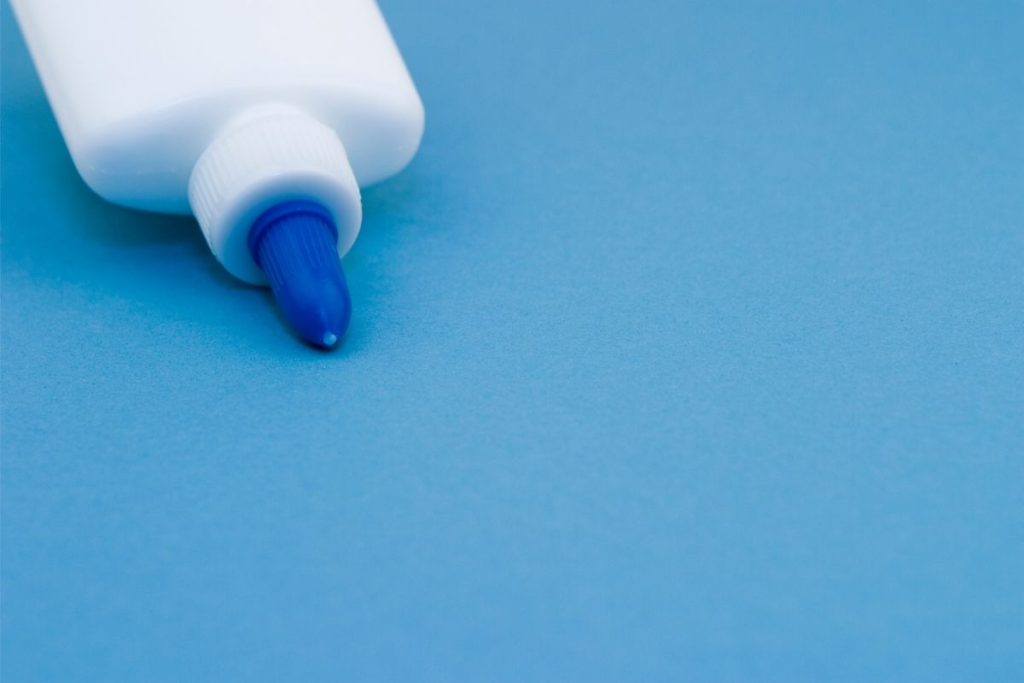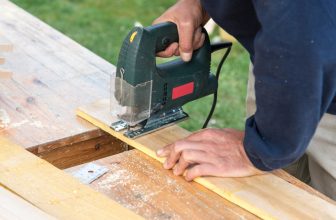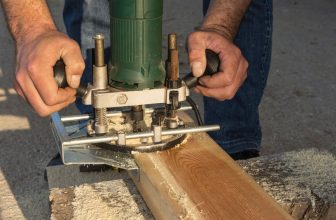Contents
When something in the house needs fixing, you always want to make sure that whatever you’re fixing stays fixed. Some people will stand by super glue and ensure that it’s their first option for anything DIY.
However, others have started to look for a wide range of other options to keep their possessions together.

Gorilla glue is one of these options and we’ll be looking at the differences between the two, with the positives and negatives for each of them.
Hopefully, this guide will make your job a lot easier.
What Is Super Glue?
Super glue is typically used when you need something stuck together permanently. This can include things like joining wood onto furniture or metal work on cars.
It’s often not as strong as another type of adhesive but it has some advantages over Gorilla glue.
One of the main reasons you might use super glue is that you have limited time available.
You may well need items held together for hours rather than minutes so if you’re only doing temporary fixes then super glue could easily do the trick.
The Pros Of Using Superglue
There are a few advantages where using super glue can help you out.
Firstly, it’s very quick to apply and remove. It doesn’t give off any fumes, which means there won’t be any damage to nearby surfaces.
Also, it takes less time than Gorilla glue to dry and cure. Even though it isn’t as strong, it does mean that you don’t have to worry about damaging the item while trying to fix it.
It’s also much safer than Gorilla glue as it doesn’t contain any dangerous ingredients. The final benefit is that it lasts longer than other adhesives.
If you need something stuck together for a long period of time, super glue should work better for you than Gorilla glue.
The Cons Of Using Superglue
There are a couple of disadvantages to using superglue instead of gorilla glue. First of all, it’s more expensive than normal glue.
In addition, it usually requires a stronger surface to adhere to. That said, it’s still an excellent choice for many jobs.
Another con to using superglue is that you lose control of how strong it gets. If you were to use a high concentration of glue, it would become too hard to take apart again.
That’s not necessarily a problem if you know what you’re doing but a novice user could end up with too much in one spot.
What Is Gorilla Glue?
Gorilla glue is an adhesive that works in a very similar way to super glue. The main difference between the two is that gorilla glue contains no solvents. As such, its consistency is thicker and more sticky compared to super glue.
So basically, it’s a stronger, thicker variation of superglue, which is great for long-term fixes.
When you’re using gorilla glue, there aren’t as many downsides. It dries quickly and gives off little fumes. It doesn’t cause problems for your skin either, should you accidentally end up getting some on yourself.
The Pros Of Using Gorilla Glue
Like most glues, there is a mixture of benefits and drawbacks to using gorilla glue instead of super glue. Here is a list of pros:
1) Quick drying time – A faster drying speed makes it easy to put together and take apart parts of your project.
2) Stronger bond strength – When putting materials together, you want them securely glued. Gorilla glue produces a particularly strong hold.
3) No fumes – Another plus point is that gorilla glue doesn’t emit any toxic chemicals into the air.
4) Non-toxic – Due to gorilla glue being 100% non-toxic, it’s safe for children and pets alike.
5) Safe – Like super glue, gorilla glue is completely free from harmful substances. Unlike super glue, gorilla glue does not contain any harsh solvents.
6) Long lasting – While gorilla glue is considerably stronger than regular superglue, it can be easily peeled away when needed.
Cons Of Using Gorilla Glue
And now, let’s take a quick look at the cons of gorilla glue:
- Tricky to move – once the glue fully hardens, it can be very tricky to move your project into different positions. You need to be sure of its positioning before you apply it!
- Peels away easily – while you can be sure gorilla glue will stay in place, it can peel away, which is problematic if you want it to remain in place!
Are They Both Waterproof?
Sometimes, the situation calls for an adhesive that works on surface materials exposed to water. This includes wood, metal, masonry, concrete, glass, and ceramics, among others.
You can find products that do this well, but they might not be super glue or Gorilla glue.
However, due to the chemical makeup of their ingredients, both Gorilla glue and super glue won’t perform nearly as well in these conditions.
These types of adhesives were designed to be used indoors because they don’t dry fast enough to stay on surfaces outside.
How Do I Know Which Adhesive Works Best For Me?
If you’re looking to stick things together, whether at home or in business, choosing the right glue is important. As we’ve discussed, there are several different kinds of glues out there.
Each offers a unique set of advantages and disadvantages, so knowing what kind of glue will work best for you can help cut down on wasted effort.
To begin, think about the type of material you need to apply the glue to. If you’re dealing with a wooden piece, like a deck board, apply a product that is meant for wood.
Need to know more on that topic? Check out our article to find out the Best Wood Glue!
If you’re building something made entirely from plastic, then opt for a product with a similar chemical composition.
There are also special versions of super glue that work well on certain types of plastics.
Another consideration is whether you need a product that can withstand extreme temperatures. If you plan on working outdoors during the winter months, look for a waterproof product.
And while you’ll need to pay a little bit more for this sort of tool, it might be worth your while.
Final Thoughts
There are a few differences between Gorilla glue and super glue. However, you’ll find that the two probably have more in common.
Gorilla glue tends to be stronger and will last longer than super glue. However, super glue will probably cost you less in the long run.
Depending on which surface or material you plan on using the glue on, you’ll have to adjust your decision accordingly.
Both will have their pros and cons for different situations and you’ll need to decide at the time. At the end of the day, you know best.







